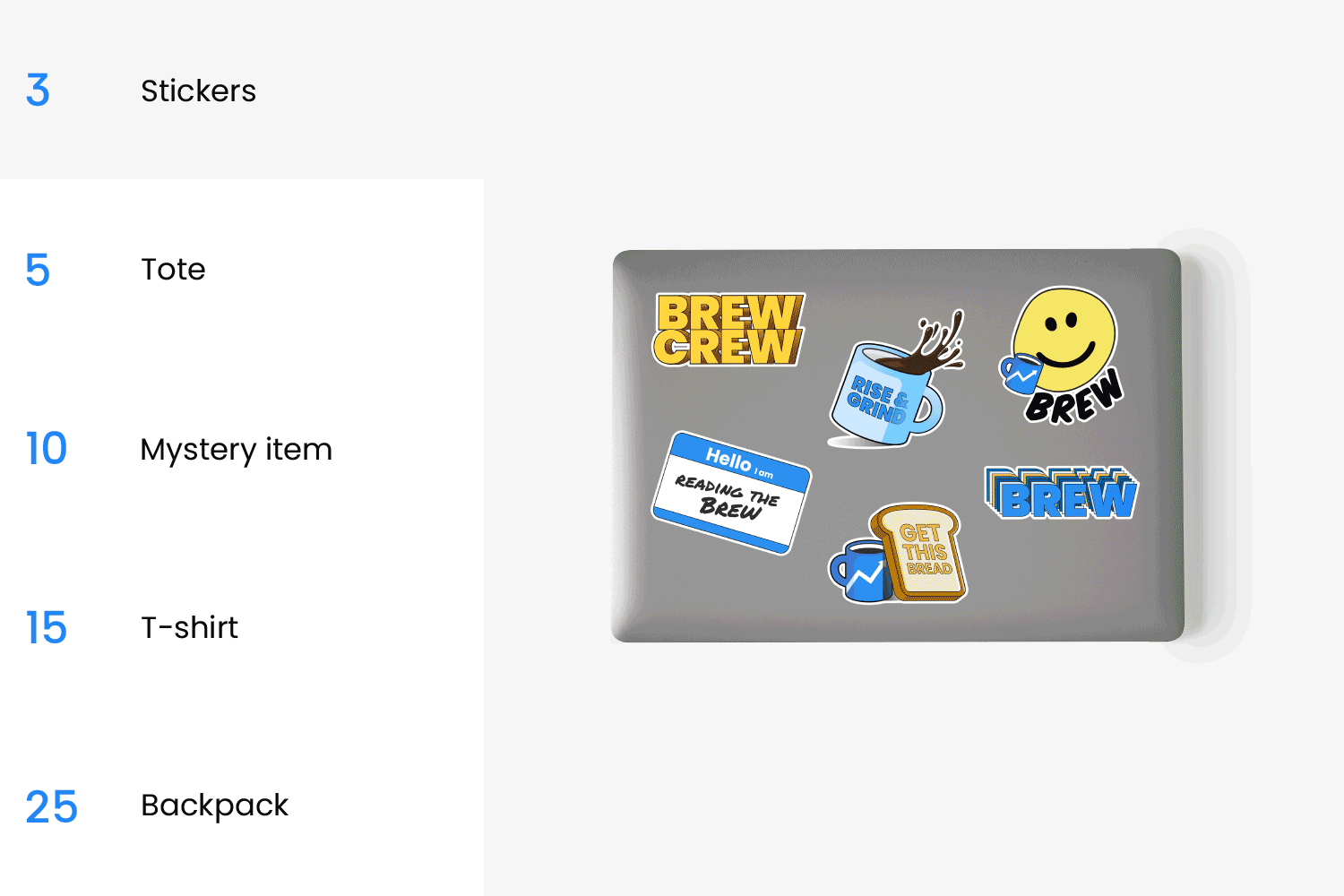|
Welcome back! Do you have a team member struggling to keep up? Or someone looking to gain a competitive edge? Try sending them a referral link to subscribe to HR Brew. By signing up with your link, they can gain industry insights and inspiration, and you can earn free Morning Brew swag. To get started, scroll to the bottom of today’s newsletter to find your unique shareable link and referral count!
In today’s edition:
 From full-time to fractional From full-time to fractional
 World of HR World of HR
 Hiring, but make it human Hiring, but make it human
—Mikaela Cohen, Kristen Parisi, Jordyn Grzelewski
|
|
Francis Scialabba
|
In April 2017, Barbie Brewer’s health took a turn for the worse. The then-VP of talent at Netflix was experiencing symptoms of what she would soon learn was a rare sarcoma cancer.
In order to focus on her health, while also going through a divorce and taking care of her two young kids, she realized she could no longer commute from her Pleasanton, California, home to Netflix’s office outside San Jose. So, in May 2017, she left the streaming giant in search of more flexible work.
At the time, full-time, remote jobs were few and far between, Brewer said, and she had doubts that she could find one while undergoing cancer treatment. She started consulting and freelancing part-time, but before long, she received an offer from a GitLab recruiter to become the fully remote software developer’s first chief culture officer. By August 2017, she was leading its 200 employees across 40 countries.
During this time, Brewer said she developed an expertise in working flexibly. That skill would serve her later in career, when she embarked on her most flexible role yet: fractional chief people officer.
Keep reading here.—MC
|
|
|
But to make that future a reality, a simpler, faster, and more human approach to hiring needs to happen today.
Don’t miss Indeed FutureWorks this Sept. 26 to hear unique perspectives on better hiring from the likes of Trevor Noah (yes, you read that right), Indra Nooyi (former chairman and CEO of PepsiCo), and other thought leaders in the space.
Throughout the deeply educational and interactive event, you’ll learn how to apply skills-first hiring to reach and retain untapped talent pools, discover new AI tools to help you solve your current challenges, and much more.
Claim your free virtual ticket.
|
|
Francis Scialabba
|
While some countries are trying to shorten the workweek, Greece just made it longer for many workers.
Where in the world? Greece became the first country in the EU to mandate a six-day workweek this month, NPR reported. The law only applies to companies that operate services 24/7 in industries that may have specialized laborers, like manufacturing. Companies that opt in can require that employees work 48 hours a week, with 40% overtime pay for the extra eight hours. Workers may fulfill this by working an additional day, or by working two more hours each day, according to the Guardian.
More than 82% of Greek employers say they’re struggling with a skills shortage, according to the Greek Reporter, and Prime Minister Kyriakos Mitsotakis has claimed the move is necessary to help address the issue. The government also said that the move will help workers make more money, at a time when the cost of living and inflation are rising.
Satellite view. Greece isn’t the only country trying to solve a labor shortage. In June, Germany began offering an Opportunity Card visa to attract more skilled foreign workers, and Singapore recently introduced the right to flexible work in an effort to keep people, including women and caregivers, in the workforce.
Keep reading here.—KP
|
|
Allison Whitesell
|
AI hype train, meet an actual train maker.
Tech Brew recently caught up with Allison Whitesell, head of talent acquisition at Siemens Mobility North America, about the ways that the division of the multinational conglomerate is integrating AI into its workplaces and talent searches.
Whitesell, who will participate in Tech Brew’s June 26 event, Onboarding Your Favorite New Coworker: AI, has a background in finance but found herself working in recruitment during the Great Recession. She’s now been with Siemens for 13 years and last year she took on the talent-acquisition role, where she oversees numerous recruiters. Right now, her team is focused on staffing a new manufacturing facility in North Carolina.
This conversation has been lightly edited for length and clarity.
What are some of the ways that Siemens Mobility is integrating AI into its recruitment and hiring processes?
We do have several different pieces of AI that we incorporate into our entire recruiting process, starting with the job description.
Keep reading on Tech Brew.—JG
|
|
|
AI has heart. Get this: 62% of candidates believe AI will make the recruitment process more human. The people believe in AI, and Aptitude Research has the deets. They surveyed 350+ HR and talent leaders on the impact of AI on the candidate experience, and the results are huge. Take a look.
|
|
Level up your career with these resources from our sponsors!
|
|
Francis Scialabba
Today’s top HR reads.
Stat: Some 30% of US adults who quit their last job said they would’ve stayed if their employer had offered additional compensation and benefits. (Gallup)
Quote: “I don’t think it’s a coincidence that when there is this big public mess, when there’s a possibility of someone’s reputation being tied up with this problem, we suddenly default to women in a way that we haven’t historically.”—Sophie Williams, author of The Glass Cliff, on how some corporations move women into high-ranking positions during times of crisis (the New York Times)
Read: Delta is changing its policy around the types of pins employees are allowed to wear on their uniforms, after a customer complained about flight attendants wearing pins featuring the Palestinian flag. (The Hill)
Better hiring: Get your free virtual ticket to Indeed FutureWorks to hear from industry leaders + celebrity speakers like Trevor Noah. Learn how to apply skills-first hiring, discover new AI tools, and get actionable takeaways.* *A message from our sponsor.
|
|
|
Share HR Brew with your coworkers, acquire free Brew swag, and then make new friends as a result of your fresh Brew swag.
We’re saying we’ll give you free stuff and more friends if you share a link. One link.

Your referral count: 2
Click to Share
Or copy & paste your referral link to others:
hr-brew.com/r/?kid=9ec4d467
|
|
ADVERTISE
//
CAREERS
//
SHOP
//
FAQ
Update your email preferences or unsubscribe
.
View our privacy policy
.
Copyright ©
2024
Morning Brew. All rights reserved.
22 W 19th St, 4th Floor, New York, NY 10011
|
|










